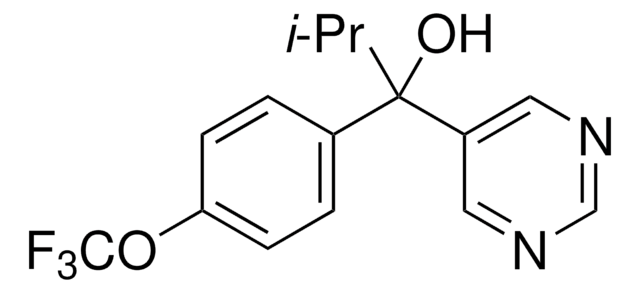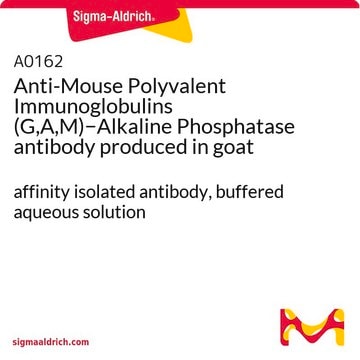A9431
Ancymidol
suitable for plant cell culture, BioReagent
Sinónimos:
reducymol, thritone, α-Cyclopropyl-α-(4-methoxyphenyl)-5-pyrimidinemethanol
About This Item
Productos recomendados
product line
BioReagent
Quality Level
form
powder
technique(s)
cell culture | plant: suitable
application(s)
agriculture
storage temp.
2-8°C
SMILES string
COc1ccc(cc1)C(O)(C2CC2)c3cncnc3
InChI
1S/C15H16N2O2/c1-19-14-6-4-12(5-7-14)15(18,11-2-3-11)13-8-16-10-17-9-13/h4-11,18H,2-3H2,1H3
InChI key
HUTDUHSNJYTCAR-UHFFFAOYSA-N
¿Está buscando productos similares? Visita Guía de comparación de productos
General description
Application
Biochem/physiol Actions
Storage Class
11 - Combustible Solids
wgk_germany
WGK 3
flash_point_f
Not applicable
flash_point_c
Not applicable
ppe
Eyeshields, Faceshields, Gloves, type N95 (US)
Certificados de análisis (COA)
Busque Certificados de análisis (COA) introduciendo el número de lote del producto. Los números de lote se encuentran en la etiqueta del producto después de las palabras «Lot» o «Batch»
¿Ya tiene este producto?
Encuentre la documentación para los productos que ha comprado recientemente en la Biblioteca de documentos.
Chromatograms
application for HPLCapplication for HPLCNuestro equipo de científicos tiene experiencia en todas las áreas de investigación: Ciencias de la vida, Ciencia de los materiales, Síntesis química, Cromatografía, Analítica y muchas otras.
Póngase en contacto con el Servicio técnico








